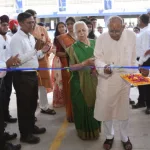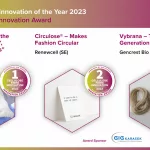 Driving Innovation in Difficult Times
Driving Innovation in Difficult Times
UKRI has just published this article on the work being doing by BFTT. “The Business of Fashion, Textiles & Technology Partnership, together with our fellow Creative Cluster Future Fashion Factory in Leeds, has ‘provided a driving force in innovation to ensure the UK industry remains at the forefront of creativity and technology’ in the current challenging context of Brexit, environmental crisis and COVID-19 pandemic.” The two clusters are working as catalysts, bringing together a range of engineers, anthropologists and scientists – with design leading and facilitating the transdisciplinary work across the partnerships. The article throws light on the work of BFTT in the context of the Creative Industries Clusters Programme. BFTT stands for the Business of Fashion, Textiles and Technology Partnership. This is a five year project, led by University of the Arts London, in partnership with UK universities, research institutions, companies and trade organisations. BFTT is working across seven challenges, including a dedicated programme in support to fashion, textiles and technology small and medium enterprises (FTT SMEs) across the UK. BFTT is part of the Creative Industries Clusters Programme, which is being funded by the Industrial Strategy and delivered by the Arts and Humanities Research Council. UK Research and Innovation’s (UKRI) works in partnership with universities, research organisations, businesses, charities, and government to create the best possible environment for research and innovation to flourish. The aim is to maximise the contribution of each of UKRI’s component parts, working individually and collectively. We work with our many partners to benefit everyone through knowledge, talent and ideas. Operating across the whole of the UK with a combined budget of more than £8 billion, UKRI brings together the seven Research Councils, Innovate UK and Research England. “Our mission is to be a trusted partner and to ensure research and innovation continues to flourish in the UK. We will support and help connect the best researchers and innovators with customers, users and the public. We will invest every pound of taxpayers’ money wisely in a way that maximises impact for citizens, in the UK and across the world.” The article is published on AHRC’s website. Arts and Humanities Research Council (AHRC)is part of UK Research and Innovation (UKRI), a new body that works in partnership with universities, research organisations, businesses, charities, and government to create the best possible environment for research and innovation to flourish. Operating across the whole of the UK with a combined budget of more than £6 billion, UK Research and Innovation brings together the seven Research Councils, Innovate UK and a new organisation, Research England.
A perfect storm of Brexit, sustainability and COVID-19 means the fashion and textiles industry is facing unprecedented challenges. UKFT is working with two AHRC-funded programmes which are bringing together academics and industry – and helping to navigate these choppy waters.
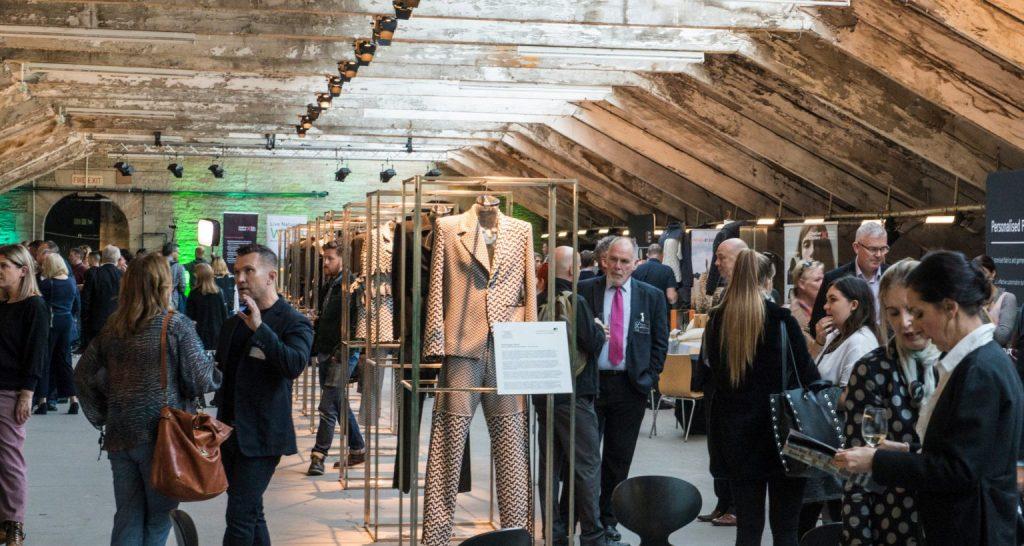 Year One Showcase (Future Fashion Factory)
Year One Showcase (Future Fashion Factory)
The UK Fashion & Textile Association (UKFT) is the most inclusive network for fashion and textile companies in the UK. UKFT brings together designers, manufacturers, suppliers, agents and retailers to promote their businesses and our industry, both in the UK and throughout the world.
Fashion Manufacturing Skills Textiles
The UK has a fashion and textiles industry that is highly regarded around the globe. While fashion alone brings in an estimated £32 billion to the economy, the wider fashion, textiles and technology industry encompasses everything from the agriculture of raw materials to the advertising of garments. Over the past 18 months, the work of two highly-collaborative programmes – Business of Fashion, Textiles and Technology (BFTT) and Future Fashion Factory (FFF) – has provided a driving force in innovation to ensure the UK industry remains at the forefront of creativity and technology, despite the huge challenges presented by Brexit, the circular economy and, most recently, COVID-19.
BFTT (based at University of the Arts London) and FFF (University of Leeds) are part of the Arts and Humanities Research Council’s Creative Industries Clusters Programme (CICP), launched in 2018 to strengthen partnerships between universities and industry and address some of the most pressing challenges faced by the creative industries.
“This is very much a collaborative research and development effort, with industry defining the challenges and then leveraging academic expertise to help create solutions,” explains Professor Stephen Russell, Programme Director of FFF. “Being led by industry in this way means we are focussing on fixing real problems and working with the businesses that have the means to implement solutions and maximise the benefit to industry and the UK.”
Gathering industry insights
Key industry insights were pinpointed by BFTT, which has been in touch with more than 2500 organisations and gathered more than 800 responses from fashion and textiles business owners, founders and chief executives across the UK supply chain in the UK’s largest national survey of the industry to date, completed pre COVID-19.
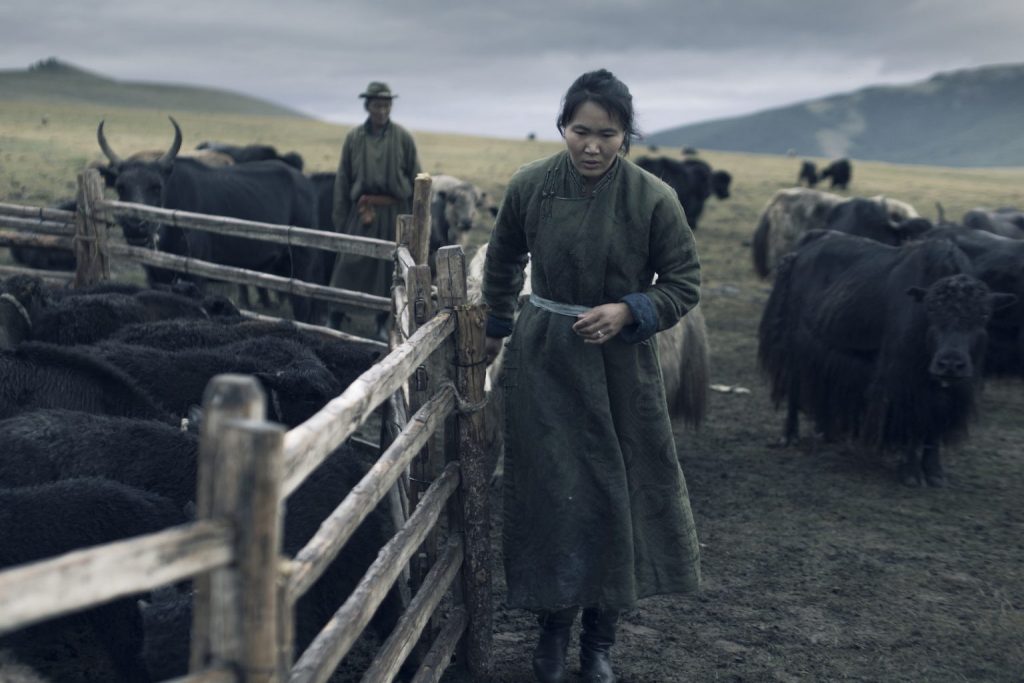 Using natural fibres, such as those of the indigenous yak and camel that have roamed the Khangai Mountains of western Mongolia. Credit: Tengri (supported by BFTT)
Using natural fibres, such as those of the indigenous yak and camel that have roamed the Khangai Mountains of western Mongolia. Credit: Tengri (supported by BFTT)
The work of the two clusters has come at “exactly the right time” for the UK fashion and textiles industry, says Professor Jane Harris, Programme Director of BFTT. “For decades this sector has had no agency in terms of leading its own R&D agenda. It has had technology imposed where it’s either not been needed, or considered environmentally sustainable – innovation opportunities are significantly greater, and more insightful than LEDs on dresses!” she says. “We’re now at a point where the Government’s Industrial Strategy is looking at the circular economy, and people such as Greta Thunberg and Sir David Attenborough have flicked a switch on cultural attitudes to sustainability. This creates many challenges for an industry that is traditionally so wasteful, but it also means there’s tremendous opportunity for innovation in very real terms for the UK.”
The clusters are working as catalysts, bringing together a range of engineers, anthropologists and scientists – with design leading and facilitating the transdisciplinary work across the partnerships.
Supporting creative SMEs
Small to Medium Enterprises (SMEs) are critical to the economy, particularly in the creative sector where they make up over 95 per cent of creative businesses in the UK. Through its SME Research and Development Programme (launched in May 2019), BFTT is highlighting the value and impact these businesses can have in the sector and on the economy when provided with the right type of financial support and research expertise.
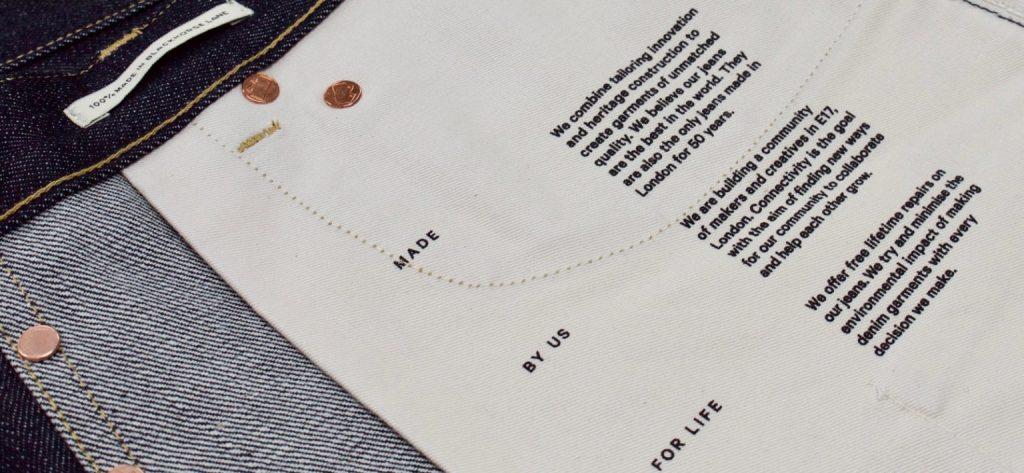 Credit: Blackhorse Lane Ateliers (supported by BFTT)
Credit: Blackhorse Lane Ateliers (supported by BFTT)
“There has been the most incredible response to this programme,” says Professor Harris. “We expected around 10 applications for the first call but we had 80, which we then shortlisted to 23. The industry is represented across the sectors, including retail, manufacturing and design.”
The dynamism of these SMEs combined with the bespoke academic expertise offered by BFTT creative research and development partnership is supporting the ambitions of potential global brands of the future, says Professor Harris. “These businesses have existing products but they need innovation to help take their operative to the next level,” she says.
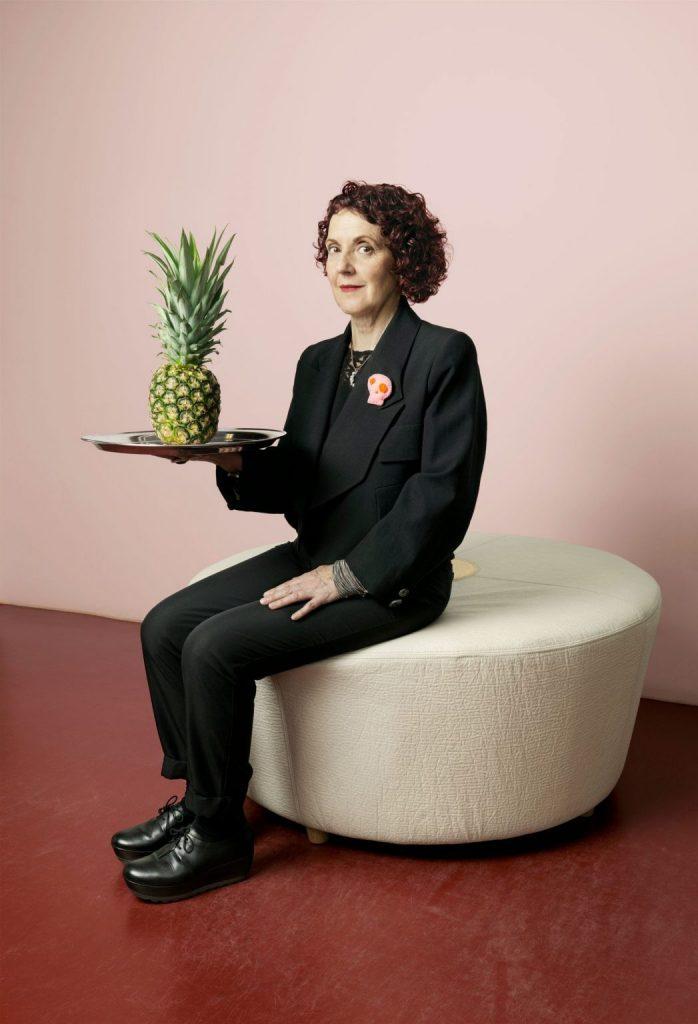 Piñatex is an innovative new material made from waste pineapple leaf fibre. Credit: Ananas Anam (supported by BFTT)
Piñatex is an innovative new material made from waste pineapple leaf fibre. Credit: Ananas Anam (supported by BFTT)
“Some of the work coming out of these R&D projects is novel and may have global potential in a scaled up form, generating intellectual property for the SMEs to research and develop further. We have Elvis & Kresse, where materials engineers are looking at how to develop a prototype foundry to break down and repurpose mixed metal components, sourced from landfill. Ananas Anam is advancing the potential of an established natural textile, Pinatex, made from pineapple leaf fibre – currently a by-product of existing agricultural processes.”
With recent negative media headlines surrounding potential slave labour, importantly, BFTT is working with companies that have the ethics of people, place and environment central to their business ecosystems. “Bad practices have existed for centuries but, indirectly, COVID-19 has highlighted some of them,” says Professor Harris. “Professor Dilys Williams, Co-Investigator on BFTT, and Director of the UAL Centre for Sustainable Fashion, prioritises people, community, and environment in her research. She recently discussed issues pertaining to modern slavery in the UK on BBC Radio 4’s Woman’s Hour.”
Creating a more agile industry
Although reduced in recent decades, manufacturing still makes a significant contribution to the UK fashion and textiles industry, particularly the production of luxury materials. “It would be very difficult to resolve many of the challenges faced by the industry if we didn’t look at manufacturing and design, so FFF is exploring and developing new digital and advanced textile technologies,” says Professor Russell. “Our aim is to transform the UK industry’s agility; how speedily it can react to demand and its capacity for new product innovation.
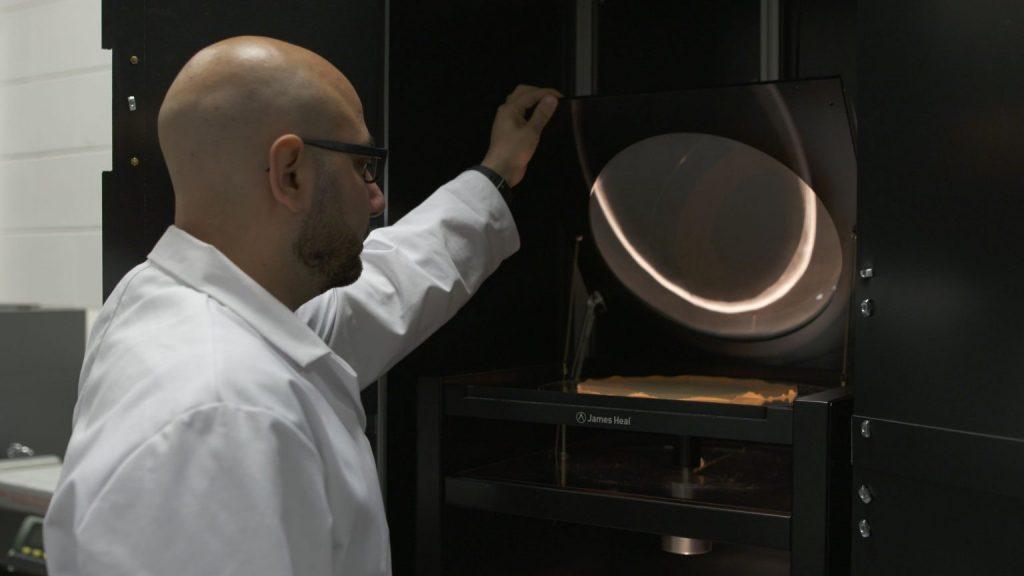 Future Fashion Factory lab technician. Credit: Future Fashion Factory
Future Fashion Factory lab technician. Credit: Future Fashion Factory
“At the moment, it can take months to take a product from design to retail. The process is not only time-consuming but also wasteful in terms of resources. We’re working to develop digitally-connected design and manufacturing processes that can respond quickly, and customise at a small-scale at no extra cost.”
Data-driven design is also helping the industry meet targets to reduce waste. Artificial intelligence is used to analyse huge data sets that can then inform design decisions, making it more likely to create a ‘right-first-time’ fabric or garment that will be a commercial success and not result in large volumes being discounted, or sent to landfill and incinerators.
However, these are not generic ‘design bots’ that take away the role of the creative, says Professor Russell. “The digital systems are capable of learning a designer’s preferences and style, so act as an intelligent assistant, advising on colourways or features that might suit different customers wherever they happen to be located.”
Improvements in speed and agility were evidenced recently in FFF’s support to several of its commercial partners during the COVID-19 epidemic who converted operations to create much-needed personal protective equipment (PPE), such as face coverings. “We’ve been actively involved in helping companies with design and manufacture of PPE products in a very short timescale.”
Exploring the fashion experience
The nature of fashion retail has changed dramatically in recent years – and the impact of COVID-19 has further accelerated change. However, the two fashion clusters are at the forefront of research in this field.
It’s a really positive sign that, despite very difficult times for many, the appetite for research and innovation is still there.”
says Professor Russell
“The industry faces a multi-million pound and, perhaps more importantly, huge sustainability issue surrounding consumers that wear an item once, share on social media, leave the tags in and return it. We are dealing with a level of commerce that’s more about experience, so how can we create alternative and compelling fashion experiences for the consumer?” says Professor Harris. “BFTT research is exploring the use of augmented and virtual reality, side stepping the literal ‘virtual catwalk’ concept. We’re thinking about the creative and anthropological elements to technology – what provides the ‘buzz’ of that social and consumer experience, and how can it be equaled, or even augmented?”
Recent limits on face-to-face interaction have heightened the relevance of FFF work on immersive digital communication. Where once fabric or garment samples needed to be shipped, an FFF project is exploring how tactile qualities can be translated into transmittable data. “It has the potential to not only speed up design processes, but reduce the waste from samples, too,” says Professor Russell.
Industry demand for innovation
Despite, or perhaps due to, the enormous challenges surrounding the circular economy, Brexit and COVID-19, there is a strong demand from the fashion and textiles industry for innovation. “We had the biggest response to our latest R&D call, which went out during lockdown – more than 40 companies applied,” says Professor Russell. “It’s a really positive sign that, despite very difficult times for many, the appetite for research and innovation is still there.”
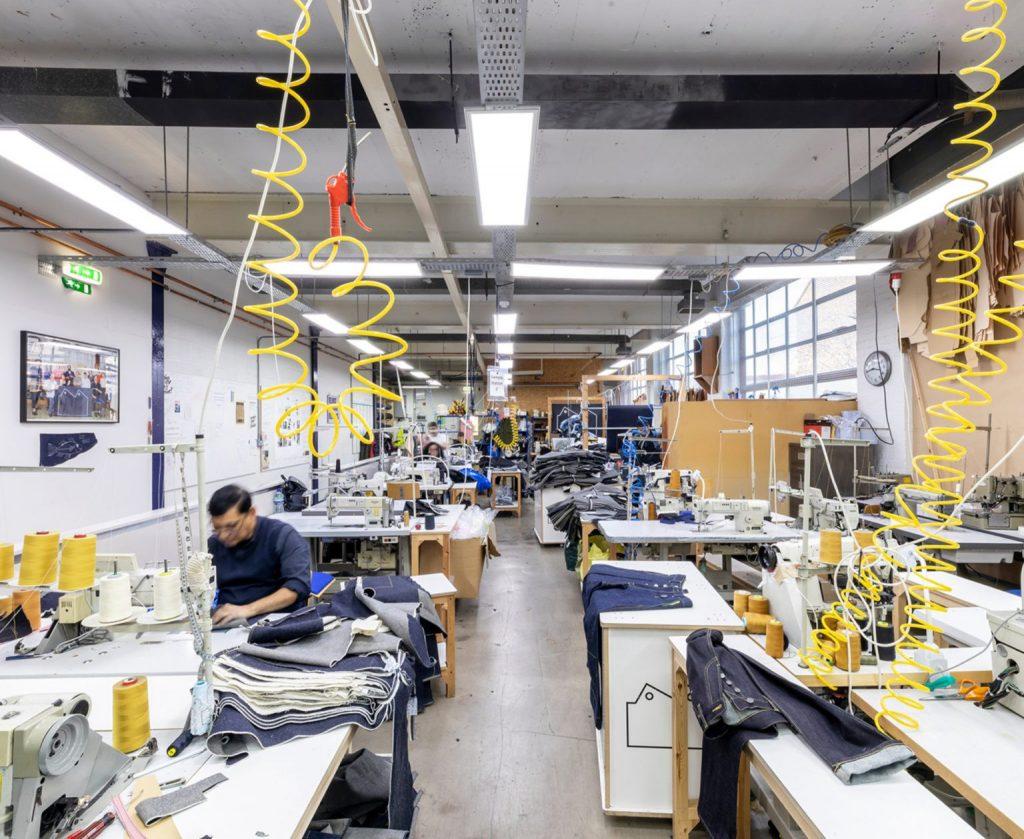 Credit: Blackhorse Lane Ateliers (supported by BFTT)
Credit: Blackhorse Lane Ateliers (supported by BFTT)
With the two CRDPs now established and complimentary in scope, BFTT and FFF teams are beginning to explore opportunities for collaboration and wider partnership, including responses to COVID-19 and Circular Economy initiatives – a further very positive outcome of the CICP in only a year and half.
The BFTT has also launched its second SME R&D Support Programme funding call. “We hope to be working with another five to 10 companies by mid-2021 who really represent the vanguard for fashion, textiles and technology businesses of the future,” says Professor Harris. “The ultimate aim of BFTT is to establish an institute that will umbrella this way of working, maintaining the academic and industry partnerships that we’ve had the opportunity to establish – and deliver industry-changing innovation, in addition to informing cross disciplinary curricula in schools, Further Education and Higher Education that cements a vision for a more sustainable fashion, textiles and technology ecosystem, which supports growth here in the UK and globally.”
Impact at a glance
Business of Fashion, Textiles and Technology
- BFTT has been in touch with over 2,500 organisations, and received over 800 responses to the UK’s largest national survey of the fashion and textiles industry to date
- A newly emergent network of approx. 50 doctoral students established across the STEAM University partnership
- 15 postdoctoral research and industry equivalent appointments have been made to date, the majority aligned to the partnership’s SME R&D Programme
- The first round of the SME R&D Programme received over 80 expressions of interest, 23 shortlisted to submit a full application; over 40hrs of 1:1 specialist business mentoring; 100 hrs of advisory support, and 12 business development workshops
- A panel of industry and academic experts have made 10 awards to date, for projects in receipt of £1.2m of investment launched by June 2020, with a further £1.5 million funding announced in July 2020 for project awards over 2020 /21
Future Fashion Factory
- £1.3 million investment in the fashion and textile industry secured in the first two funding calls (4 more planned by 2023)
- 268 companies and professionals in the Future Fashion Factory membership community
- 2,775 companies and individuals in Future Fashion Factory’s wider industry network
82 expressions of interest received across three R&D calls - More than 6,000 people have attended events either hosted by or featuring Future Fashion Factory
- 60 industry apprenticeships supported through the Textile Centre of Excellence
- 47 PhD, Core Research Theme and Responsive R&D projects supported

